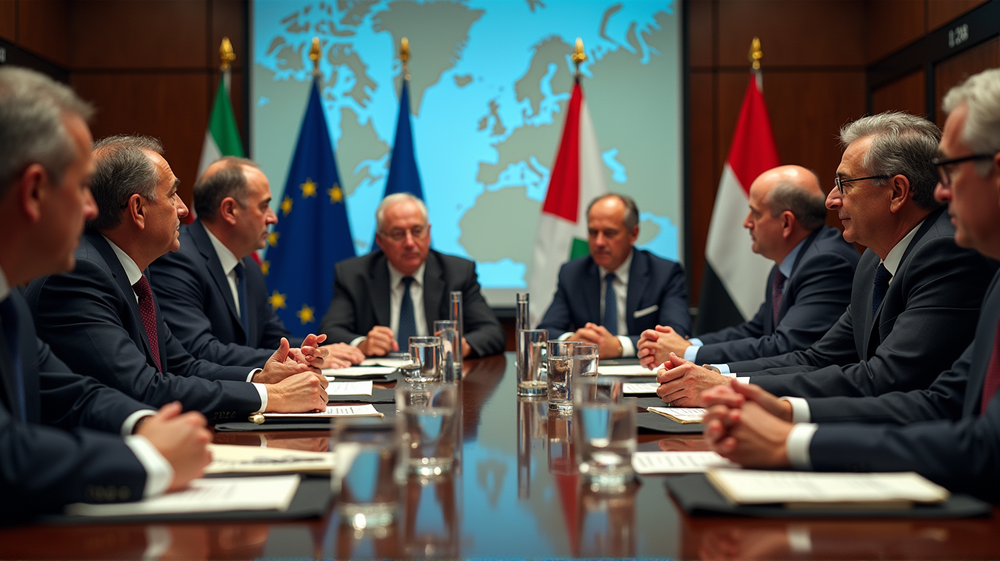The diplomatic corridors of Copenhagen hum with intensity as European Union foreign ministers converge to tackle a subject fraught with complexity and emotion: potential sanctions against Israel for its actions in the ongoing Gaza conflict. As stated in Al Jazeera, the assembly endeavored to reflect the EU’s values amidst a landscape marred by humanitarian disaster and geopolitical turmoil.
A Divided Front
The meeting signals a crucial moment for the EU, presenting a stark contrast between member nations. Countries like Spain and Ireland are pushing for robust sanctions to curb Israel’s military aggression. Meanwhile, Germany and Hungary, steadfast allies of Israel, advocate for a more restrained approach. This schism underscores the EU’s struggle to find a cohesive stance.
Sanctions on the Table
One of the pivotal proposals under consideration is the suspension of EU funding to Israeli start-ups. While supported by nations such as Spain and the Netherlands, the proposal faces significant hurdles without the necessary consensus. Denmark’s Foreign Minister, Lars Lokke Rasmussen, emphatically called for not just words, but tangible actions to address the humanitarian crisis.
Voices in Contention
Spain’s Foreign Minister, Jose Manuel Albares, expressed frustration over the EU’s response, stressing the urgency for decisive action. Meanwhile, Kaja Kallas, EU’s foreign policy chief, underscored the divide, admitting to low optimism about reaching a conclusive decision. With headlines ablaze about Gaza’s famine—a claim hotly contested by Israel—pressure mounts on EU policymakers to act decisively.
Catalysts of Change
Public sentiment across Europe has shifted, amplifying calls for the EU to honor its commitment to human rights. Hashem Ahelbarra of Al Jazeera reports a palpable change in mood, with Europeans criticizing the bloc’s inability to uphold humanitarian law effectively. According to Hadja Lahbib, the EU’s crisis management commissioner, it is imperative for the union to forge a unified voice.
Broader Implications
Adding another layer to the discussions is the war in Ukraine. Debates on handling over $245 billion in frozen Russian assets swirl alongside EU’s Gaza deliberations. Here again, unity falters as states grapple with using seized funds to bolster Ukraine.
In conclusion, as tensions escalate and eyes of the world turn to Copenhagen, the decisions made by EU foreign ministers could set precedents, not just for the Gaza conflict but for the EU’s role on the global stage. The outcome remains hanging in the balance, swathed in uncertainty.












